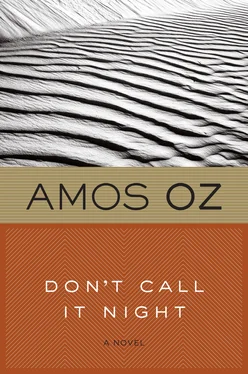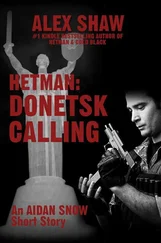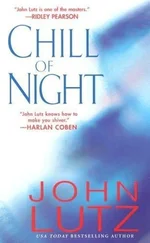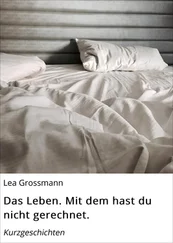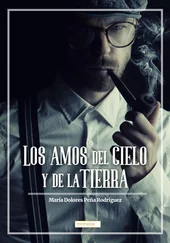Amos Oz - Don't Call It Night
Здесь есть возможность читать онлайн «Amos Oz - Don't Call It Night» весь текст электронной книги совершенно бесплатно (целиком полную версию без сокращений). В некоторых случаях можно слушать аудио, скачать через торрент в формате fb2 и присутствует краткое содержание. Год выпуска: 1997, Издательство: Mariner Books, Жанр: Современная проза, на английском языке. Описание произведения, (предисловие) а так же отзывы посетителей доступны на портале библиотеки ЛибКат.
- Название:Don't Call It Night
- Автор:
- Издательство:Mariner Books
- Жанр:
- Год:1997
- ISBN:нет данных
- Рейтинг книги:4 / 5. Голосов: 1
-
Избранное:Добавить в избранное
- Отзывы:
-
Ваша оценка:
- 80
- 1
- 2
- 3
- 4
- 5
Don't Call It Night: краткое содержание, описание и аннотация
Предлагаем к чтению аннотацию, описание, краткое содержание или предисловие (зависит от того, что написал сам автор книги «Don't Call It Night»). Если вы не нашли необходимую информацию о книге — напишите в комментариях, мы постараемся отыскать её.
Notable Book of the Year
“A rich symphony of humanity. . If Oz’s eye for detail is enviable, it is his magnanimity which raises him to the first rank of world authors.” —
(UK)
At Tel-Kedar, a settlement in the Negev desert, the longtime love affair between Theo, a sixty-year-old civil engineer, and Noa, a young schoolteacher, is slowly disintegrating. When a pupil dies under difficult circumstances, the couple and the entire town are thrown into turmoil. Amos Oz explores with brilliant insight the possibilities — and limits — of love and tolerance.
“Vivid, convincing, and haunting.” —
Don't Call It Night — читать онлайн бесплатно полную книгу (весь текст) целиком
Ниже представлен текст книги, разбитый по страницам. Система сохранения места последней прочитанной страницы, позволяет с удобством читать онлайн бесплатно книгу «Don't Call It Night», без необходимости каждый раз заново искать на чём Вы остановились. Поставьте закладку, и сможете в любой момент перейти на страницу, на которой закончили чтение.
Интервал:
Закладка:
Avraham Orvieto said there was no need for that. First of all, for the time being almost all the investment had come from Theo. He would repay him in the coming weeks. There had been a delay in realizing the cash. And in any case it was becoming clear that there were many more obstacles ahead and you might say that the purchase of the building had been a little premature.
But I didn't give up. I had to present to him the accounts and receipts that I had put together, it wasn't all properly sorted out yet, and show him the paperwork and the exchanges of correspondence. He was the one who had given me this job to do, and he was the one to whom I had to report. I'll just go and bring everything I can find. Or rather, I took his hand, let's go to my room, that's where the papers are, and it's cooler there because I don't open the blinds in the morning.
The only chair in my room was occupied by the clothes and underwear that Theo had stripped off me in the night. I sat Avraham down on my bed and placed myself between the bed and the bedside table, trying to hide from him with my body what was on the chair; I put my glasses on and handed him the papers one by one. Avraham Orvieto peered at each document, his warm face radiating sympathy, curiosity and perhaps mild astonishment, and piled the papers in his lap. After a while I did sit down next to him on the bed, because I felt odd standing like that, with my shadow falling on him, almost covering his ascetic form, in this room where the noonday light filtered in softened and distorted between the slats of the blind. When I sat down I found it was even odder to be sitting knee to knee with the father of the boy on the bed where Theo and I last night had made love, lingering on every note, gently holding each other back.
I said, as though I were speaking to an inattentive schoolchild: Are you checking those papers, Avraham? Or are you just browsing? Are you dreaming?
Look, he said, you were the only teacher he liked, and he may have had an ear for literature. If you like I'll try to tell you a story. During the last winter, in December, after his first trip to Elat, I was here for two and a half days. I stayed at the Kedar Hotel. On the last evening after sunset he came to the hotel to take me for a walk. Every time I came on a visit we used to stroll for an hour or two, even though we didn't talk much. He was wearing warm corduroy trousers and a brown leather jacket, a stylish bomber jacket that I'd bought him on my way here, at Rome airport. I was wearing a coat, too. We walked shoulder to shoulder, because we were both about the same height. It was a cold evening and a strong wind was blowing off the hills. If I am not mistaken we went round the smart residential district, crossed the neglected little park behind the health clinic, and came out by Founders' House, whose front was lighted up by floodlights hidden in the bushes. Suddenly it started to rain. You're not comfortable, Noa. Why don't you lie back on the pillow? Yes, like that. Rain in the desert on a winter's night, you know, there is something about it that makes you feel sad. Even more than rain falling at the usual season in places that are not desert: it afflicts you like a deliberate insult. It was half past nine, and the streets were already deserted, and they seemed even more deserted because they were so wide. By the light of the street lamps we could see how the wind lashed the rain diagonally, every drop piercing like a needle, and a smell of wet dust came up from the ground. All the blinds were down everywhere. It looked like a ghost town. Two or three figures, perhaps Bedouins, with empty sacks on their heads for protection from the rain, ran across the square. And vanished. Immanuel and I sheltered under the corrugated metal awning of the box office of the Paris Cinema. The awning was groaning from the onslaught of the rain in the wind. Then we saw some distant lightning that made the slope of the desolate hills to the east flash white. The diagonal rain became heavier and turned into a thunderstorm. The square seemed to be turning into a dark river in the mist in front of our eyes, and the buildings seemed to be floating away from us. The roar of the flood came to us from the direction of the wadis, although on second thoughts it may have been just the shaking of the metal awning overhead. For some reason I found this deluge interfered with my perception of the desert. When I said this to Immanuel he gave a kind of twisted grin, though it was hard to tell in that wet yellow light that could not break free of the faint lamp over the shuttered ticket office. I don't even know if it was after he got caught up with drugs, or how deep he was in by then. That's something I'll never know. Once you said to me that he was very careful and sparing with words, and you were right, that's how he always was, and that's how he stood by my side inside that cage of cold railings under the awning that rattled and creaked in the rain. In that manly bomber jacket that I had chosen for him, with its zippers and pockets and metal buckles, he looked less like a tough airman than an emaciated refugee child who had been saved from drowning and dressed in his rescuers' clothes. So there he stood, looking frail and torpid, and as he leaned back against the emergency exit of the cinema it suddenly opened wide under his weight. Presumably they had omitted to lock it that evening. The rain was getting heavier so we took shelter inside the empty auditorium, which was quite dark apart from the emergency lighting that glowed faintly behind the word EXIT above the locked doors on either side. Below and facing us was the pale screen. In here the rain sounded dull, as though it were a long way away, and the thunder seemed to be under water. So there we were, my son and I, sitting side by side, like you and me now, in one of the back rows. And we realized how wet we were. And even though I could feel the warmth of his knee with mine, I suddenly had a strong sense of longing, as if he were not there next to me but, how should I put it, beyond the dark mountains. There used to be an expression like that. Though in fact on a rainy night all mountains are dark. Immanuel, I said to him, listen, now that we're sitting here, why don't we try to have a little chat. He grinned. And asked what about. About your schoolwork? About your mother? Or maybe we should talk about the future? A slight, indeterminate movement of the head. And so, from me, another two or three questions, and from him just a phrase or a mumble. Can you understand that, Noa? There I was, alone with my son on a winter's night in a cold, deserted auditorium, with our shoulders touching, or more accurately with our coats touching. And nothing was said. There was no verbal contact. None. Whereas I belong to a generation that is a very verbal one, if I can put it like that. Even if during my African years I've forgotten what there is to say when it isn't a matter of getting things done. Suddenly he blinked at me, as he did when he was little, took a deep breath, as if to say wait a minute, and pulled out of one of his pockets a magnetic game of checkers, a miniature set that I bought for him once in an airport somewhere. In that gloomy light we played three games, one after the other almost in silence, to the sound of the pounding rain. I won all three. Telling you the story now, I believe this was a mistake. I shouldn't have won all three games. What good were those victories? On the other hand, what use would it have been if I had let him win by lying and pretence? What do you think, Noa? As a teacher? As a sensitive person? Wouldn't it have been better to let him win on our last night together?
Instead of answering Avraham's questions I put my arm round his shoulder. I withdrew it at once because he turned and fixed his weary blue eyes on me and smiled his bright warm-room smile, a smile that flared up and at once faded away among those charming wrinkles, like a curtain being opened and then drawn shut. Then, he said, with his roughened hands moving in front of him as if he were trying to mould into a ball an object that did not want to be moulded, the rain slackened off and my son stood up and walked all the way back to the Kedar Hotel with me. Next morning I flew back to Lagos. I thought of writing him another letter. But there's Theo at the door now; let's go back to the sitting room and eat the pizza he's brought us, and then let's go and look at whatever he cares to show us, even though I have my doubts whether in the last analysis they'll let us build a refuge here. I do find it hard to believe they will, and in fact would it be so terrible if we decided to give up and commemorate him with some other good cause? I'm sorry for making you sad, Noa. It would have been better if I hadn't spoken; you were the one who told me that my son called words a trap, and that we didn't take care. Pity.
Читать дальшеИнтервал:
Закладка:
Похожие книги на «Don't Call It Night»
Представляем Вашему вниманию похожие книги на «Don't Call It Night» списком для выбора. Мы отобрали схожую по названию и смыслу литературу в надежде предоставить читателям больше вариантов отыскать новые, интересные, ещё непрочитанные произведения.
Обсуждение, отзывы о книге «Don't Call It Night» и просто собственные мнения читателей. Оставьте ваши комментарии, напишите, что Вы думаете о произведении, его смысле или главных героях. Укажите что конкретно понравилось, а что нет, и почему Вы так считаете.
